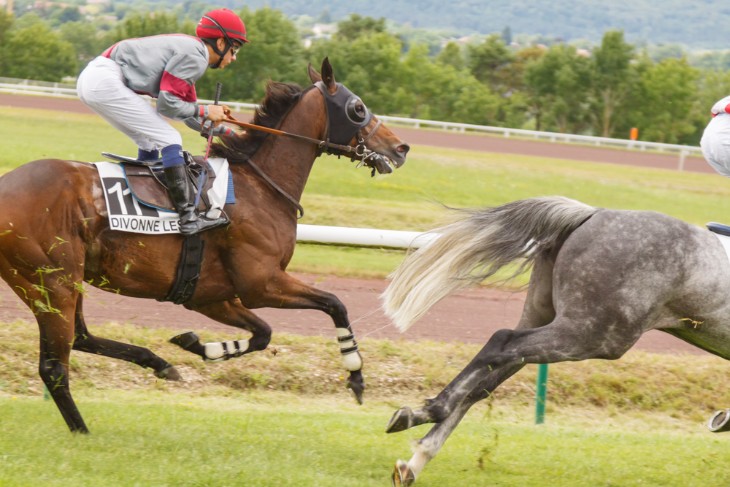- Understanding the Non-Runner No Bet (NRNB) Policy
- Legal Framework and Regulations Surrounding NRNB
- Impact of NRNB on Betting Markets and Odds
- Comparing NRNB with Traditional Betting Policies
- Financial Implications of NRNB for Bookmakers and Punters
- Role of NRNB in Managing Risks and Uncertainties
- Strategies for Punters Utilising NRNB
- Challenges and Criticisms of NRNB
- Conclusion
Understanding the Non-Runner No Bet (NRNB) Policy
The Non-Runner No Bet (NRNB) policy is a significant term in horse racing betting, particularly relevant to prestigious events like the Grand National. Under this policy, a bettor's stake is refunded if their chosen horse does not participate in the race. This is in contrast to traditional betting rules where stakes are typically forfeited if a horse is withdrawn after a bet is placed. NRNB offers a layer of protection for punters against the unpredictability of horse racing, such as last-minute withdrawals due to injury or other unforeseen circumstances.
The adoption of the NRNB policy has been a transformative development in the betting industry. It reflects a more customer-centric approach, acknowledging the variables inherent in horse racing. By offering refunds on non-runners, bookmakers give bettors a safety net, making it a popular choice for high-stakes races. This policy not only attracts more participants to the betting process but also enhances the overall betting experience by reducing the financial risk involved.
Legal Framework and Regulations Surrounding NRNB
The legal framework governing the Non-Runner No Bet (NRNB) policy is an integral aspect of its application in horse racing betting. These regulations ensure that the policy is implemented fairly and consistently, providing clarity and protection for both bookmakers and punters. In the UK, the Gambling Commission oversees the adherence to these regulations, ensuring that all betting practices, including NRNB, comply with legal standards. This regulatory body plays a crucial role in maintaining the integrity of betting activities, safeguarding against potential abuses or unfair practices.
One of the key aspects of these regulations is the clear definition of 'non-runner' as it pertains to NRNB. This clarity is essential to prevent disputes and misunderstandings between bookmakers and bettors. The regulations also stipulate the time frame within which the NRNB policy applies, typically up until a certain point before the race begins. These rules ensure that both parties understand their rights and obligations under the NRNB policy, creating a transparent and trustworthy betting environment.
Impact of NRNB on Betting Markets and Odds
The introduction of the Non-Runner No Bet policy has had a profound impact on the betting markets and odds, especially in high-profile races like the Grand National. This section highlights the key effects of NRNB on these aspects:
- Market Fluidity: NRNB increases market fluidity, as punters are more willing to place bets early, knowing they have the safety net of a refund if their horse does not run. This early betting can lead to more dynamic odds as bookmakers adjust to the betting patterns.
- Odds Calculation: The odds calculation becomes more complex under NRNB. Bookmakers must consider the likelihood of horses becoming non-runners and factor this into their odds, often leading to shorter odds for horses more likely to start.
- Risk Management for Bookmakers: For bookmakers, NRNB introduces an additional layer of risk. They must balance the need to attract punters with NRNB offers against the risk of large-scale refunds in the event of multiple non-runners.
- Punter Confidence: The policy boosts punter confidence, encouraging participation from both seasoned bettors and novices. This increased participation can lead to larger betting pools and more competitive markets.
- Strategic Betting: Savvy punters may use NRNB strategically, placing early bets on outsiders with the knowledge that they can get a refund if the horse doesn’t run. This strategy can lead to more diverse betting patterns.
Overall, the NRNB policy adds an interesting dynamic to horse race betting, influencing both the behaviour of punters and the strategies of bookmakers. The policy’s impact on odds and market movements is a testament to its significance in the modern betting landscape.

Comparing NRNB with Traditional Betting Policies
When comparing the Non-Runner No Bet (NRNB) policy with traditional betting policies, several key differences become apparent. Traditional betting policies often operate on a 'all bets are final' principle. In such cases, if a horse is withdrawn from a race after a bet is placed, the punter loses their stake. This approach, while straightforward, carries a higher risk for bettors, particularly in unpredictable events like horse races. The NRNB policy, in contrast, mitigates this risk by refunding the stake if the selected horse does not start the race.
The main benefit of NRNB over traditional policies is the reduction of financial risk for punters. This encourages more participation in betting, especially among those who might be deterred by the possibility of losing their stake due to circumstances beyond their control. On the other hand, traditional betting policies can offer higher odds and potential returns, as the risk is greater. The choice between NRNB and traditional betting depends on the individual bettor's risk appetite and their confidence in their chosen horse's likelihood of participating in the race.
Financial Implications of NRNB for Bookmakers and Punters
The Non-Runner No Bet policy has distinct financial implications for both bookmakers and punters. This section explores these implications in detail:
- For Punters:
- Risk Reduction: NRNB significantly reduces the financial risk for punters, as their stake is returned if their horse withdraws. This safety net is particularly appealing to cautious bettors.
- Betting Strategy: Punters might adopt different betting strategies under NRNB, such as betting on multiple horses, knowing they won’t lose their stake on non-runners.
- For Bookmakers:
- Liability Management: NRNB can increase the liability of bookmakers, as they might have to refund many bets in the event of multiple non-runners.
- Customer Attraction and Retention: Offering NRNB can be a strategy to attract and retain customers, as it is seen as a punter-friendly policy.
- Odds Adjustment: Bookmakers may offer slightly shorter odds under NRNB to mitigate the risk of potential refunds.
- Market Impact:
- Increased Betting Volume: The safety net provided by NRNB can lead to an increase in the volume of bets placed, as more punters are willing to participate.
- Early Betting: Punters are more likely to place bets well in advance of the race, leading to early market formation.
Role of NRNB in Managing Risks and Uncertainties
The role of the Non-Runner No Bet (NRNB) policy in managing risks and uncertainties in horse racing betting is crucial. This policy primarily serves to shield punters from the unpredictability inherent in horse racing, such as last-minute withdrawals due to injury or other unforeseen factors. By guaranteeing a refund if a selected horse does not participate, NRNB significantly reduces the financial risk for bettors. This risk management aspect is particularly vital in high-stakes races like the Grand National, where the odds and stakes are considerably higher.
From the perspective of bookmakers, NRNB also helps manage operational risks. While it might seem counterintuitive, offering NRNB can actually lead to more stable and predictable betting patterns. When punters feel secure in their bets, they are more likely to place them well in advance, allowing bookmakers to better gauge the market and adjust odds accordingly. This early market formation can lead to more balanced books, reducing the volatility and risk for bookmakers.

Strategies for Punters Utilising NRNB
Punters can adopt various strategies when using the Non-Runner No Bet (NRNB) policy to their advantage in horse racing betting. One key strategy is to place bets well in advance of the race. This early betting is less risky under NRNB, as punters are assured of a refund if their horse withdraws. Additionally, early bets often come with better odds, as bookmakers adjust the odds closer to the race based on the number of bets placed and the horses' form.
Another strategy involves diversifying bets. Under NRNB, punters can afford to spread their bets across multiple horses without the fear of losing their entire stake to non-runners. This approach not only increases the chances of winning but also minimises the impact of a single horse's withdrawal. Punters can also use NRNB to place bets on outsiders or less favoured horses, knowing that they can recover their stake if the horse doesn’t run, which could potentially result in high returns if the bet succeeds.
Challenges and Criticisms of NRNB
Despite its advantages, the Non-Runner No Bet (NRNB) policy is not without its challenges and criticisms. One of the main criticisms comes from certain sectors of the bookmaking industry. They argue that NRNB can lead to significant financial losses, especially if there are a high number of non-runners in a major event like the Grand National. This situation can result in a large volume of refunds, impacting the profitability of bookmakers. Moreover, the policy can sometimes result in lower odds being offered on all horses, as bookmakers seek to mitigate their risk, which can be a point of contention for punters seeking higher returns.
Another challenge is the potential for abuse of the policy. Some punters might exploit NRNB by placing bets on multiple horses with the intention of benefiting from non-runners, thereby skewing the market. This could lead to a less stable betting environment and could prompt bookmakers to adjust their policies, possibly making them less favourable to the majority of bettors. Additionally, managing the logistics of NRNB, such as processing a large number of refunds efficiently, can be a significant operational challenge for bookmakers.
[promotion:23]
Conclusion
In conclusion, the Non-Runner No Bet (NRNB) policy has significantly influenced the landscape of horse racing betting. It has introduced a more punter-friendly approach, reducing the financial risk for bettors and contributing to a more vibrant and dynamic betting environment.







